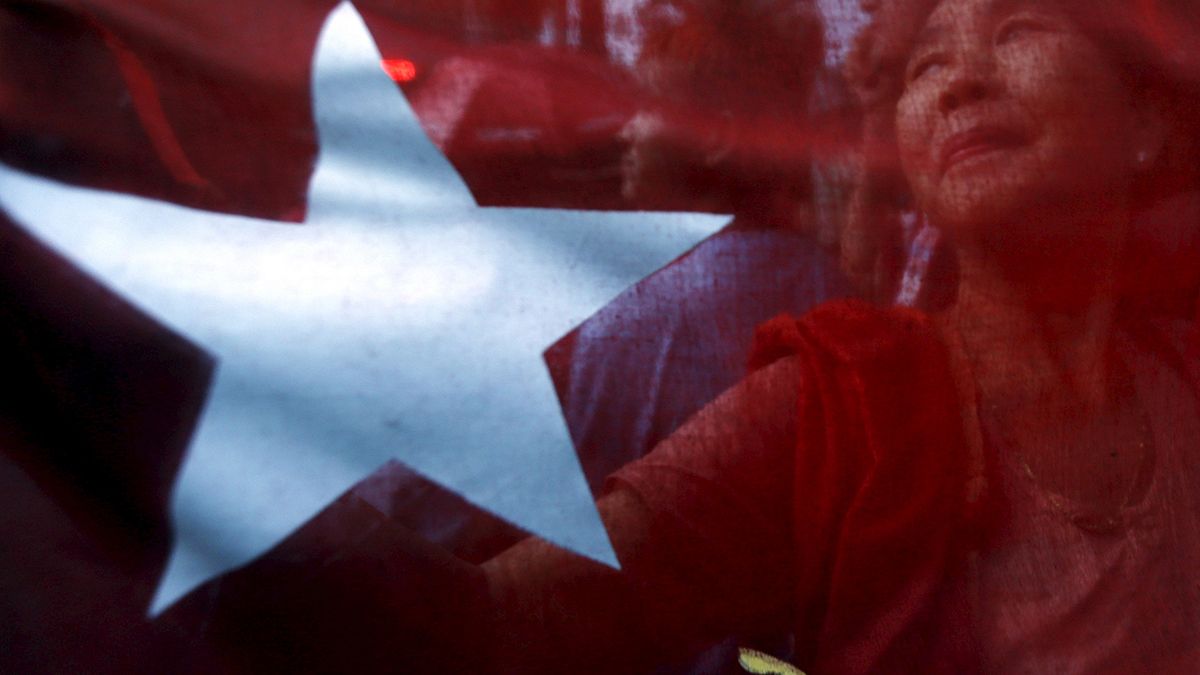Myanmar, officially the Republic of the Union of Myanmar, held a general election on Sunday, its second since polls in 2010 ended almost a
Myanmar, officially the Republic of the Union of Myanmar, held a general election on Sunday, its second since polls in 2010 ended almost a half-century of military rule. It is considered to be the country’s first free election in 25 years.
History and governance of Myanmar
Its history reads of Pagan kingdoms and Asian dynasties and empires, and in the 19th century it became a British colony after three Anglo-Burmese wars. It became an independent nation in 1948, initially as a democratic nation, and then, following a coup d‘État in 1962, a military dictatorship took over. Here are some facts about the secluded country:
- The military changed the country’s name from Burma to Myanmar in 1989.
- In the 1990 election the National League for Democracy (NLD) garnered over 80 percent of the seats, only to have the polls annulled by the military.
- The 2010 election was boycotted by the NLD, which saw it as illegitimate and unfair. It won 43 of the 44 seats it contested in 2012 by-elections.
- Though the military dictatorship formally ended in 2011, the majority of its party leaders were ex-junta.
- For much of its recent independence Myanmar has been engrossed in ethnic strife and wars amongst the country’s numerous ethnic groups. During this time, the United Nations and numerous countries and organisations worldwide have reported human rights violations in the country.
- Since 2010 the Burmese Military has taken steps toward relinquishing control of the government. This, along with the release of Aung San Suu Kyi in 2010, the country’s iconic political prisoner, has improved the country’s human rights record and has led to the easing of trade and economic sanctions. Despite this, Myanmar has a long way to go on the road to democracy.
Location and info
- A sovereign state in Southeast Asia, Myanmar is bordered by Bangladesh, India, China, Laos and Thailand. One-third of the country’s total perimeter runs as coastline along the Bay of Bengal.
- The income gap in Myanmar is among the widest in the world. As of 2013, according to the Human Development index (HDI), Myanmar had a low level of human development, ranking 150 out of 187 countries. Its GDP per capita is $1,400 vs the world average of $10,040. However, hope is on the rise in the country and even the World Bank has projected it to be one of the fastest-growing economies by 2017.
- Population: 55 million. The inland city of Naypyidaw is its planned, administrative capital and Yangon, formerly Rangoon, is its most populated urban area. Thirty-two percent of the people live in urban areas.
- Religions: Buddhist 89%, Muslim 4%, Christian 4%, Animist 1%, Other 2%
- Myanmar is rich in jade and gems, teak and oil and natural gas and other mineral resources.
Minorities and human rights
- Myanmar’s Muslim Rohingya group is a minority population whose people have been denied citizenship since 1982. Often referred to as Burma’s boatpeople, they have been fleeing persecution in the country, members claiming they have faced state-sponsored genocide. Alienation has led to refugee camps, home to more than 100,000 Rohingya who require permission to leave. In early 2015 over 25,000 Rohingya left in boats from the Bay of Bengal, doubling the levels of 2013 and 2014. More than 300 migrants died of starvation, dehydration and beatings by boat crews.
- The NLD party and its leader, Aung San Suu Kyi, have disappointed many by failing to stand up for Muslims’ rights.
- In an attempt to put an end to decades of armed conflict the government recently signed a cease-fire agreement with some of the country’s minority guerrilla groups. However, many stayed away from the accord.
- Political prisoners remain held in Myanmar and lawsuits against the press are common. Income equality is huge and land grabbing is commonplace.
Aung San Suu Kyi
- Born 19 June 1945, Aung San Suu Kyi is a Burmese political activist and chairperson of the NLD. She was under house arrest for nearly 15 years between July 1989 and November 2010. During this time she became one of the world’s most prominent political prisoners. She is a devoted Theravada Buddhist.
- Suu Kyi comes from a political family. Her father, Aung San, founded the modern Burmese army and negotiated Burma’s independence from the British Empire in 1947. He was assassinated by his rivals that year. Her mother, Khin Kyi, soon after gained prominence as a political figure in the newly formed Burmese government and was appointed Burmese ambassador to India and Nepal in 1960.
- In 1969 Suu Kyi obtained a M.A. degree in Philosophy, Politics and Economics. It was during work at the UN in New York that she met her husband Dr. Michael Aris, a scholar of Tibetan culture.
- She entered politics to work for democratisation and helped found the NLD in September 1988, but was put under house arrest on 20 July 1989. During her time under arrest she studied religion and says she was deeply influenced by Mahatma Gandhi’s philosophy of non-violence. She was awarded the Nobel Peace Prize in 1991.
- In June 2013, Suu Kyi announced on the World Economic Forum’s website that she wanted to run for the presidency in Myanmar’s 2015 elections.
